7 Content Marketing Tips from Entertainment Industry to Gain More ROI in 2023
Marketing for the media and entertainment industry is very different than it was 15 years ago, and there is a need to adapt to digital marketing.
In the past, entertainment and media used traditional marketing techniques for advertising purposes. TV shows and movies focused solely on TV advertising, for example, stick to their own.
Newspapers, radio, and television are all their own form of marketing, keeping everything on one platform where the content will eventually appear. Although TV commercials and newspaper ads are still around, they are less important than they used to be.
YouTube Ads, for example, are more cost-effective than traditional print or TV ads, and they're also more effective.
This is because, with video advertising, you not only build brand awareness but can also include links that users can click to direct them directly to the product or service you want to promote.
Like many, you're probably working on your content marketing plan for 2023, brainstorming ideas, and digging deep into your data to support your new insights.
Based on what has just been said, it's easy to see that when it comes to creating content, we must always remember that this is our audience, and that content supports many aspects of a business. Content goes hand in hand with your general sales, user experience, marketing, and customer service endeavours.
Once you're committed, you're working toward a common goal and setting your business up for success. Here are some content marketing tips to help you on your 2023 journey.
What is Content Marketing?
Content marketing is a strategic marketing strategy focused on creating and distributing valuable, relevant, and constant content to attract and maintain a well-defined audience and ultimately drive customer activity. Instead of presenting your product or service, you provide relevant and helpful content to your audience to help them solve their problems.
Our research shows that the vast majority of marketers use content marketing. Many of the world's leading companies use it, including P&G, Microsoft, Cisco Systems, and John Deere. Why? Because it works.
So, go back and read the definition of content marketing one more time, but this time take away the important and useful things. That's the difference between content marketing and the other informational rubbish you get from businesses trying to sell you "something". Companies send us messages all the time - it's just that it's often not relevant or useful. This is what makes content marketing so attractive.
Benefits of Content Marketing for Your Brand
When done right, content marketing requires an initial investment of time and resources, from planning and ideation to writing, publishing, distribution, and measurement.
Knowing your audience and providing them with the content they want takes time. Some marketers still question the ability of content to generate ROI or don't understand how to measure its value.
Here, you'll find 10 very important businesses like yours that can benefit from creating and implementing a comprehensive content marketing strategy.
1. Organic Search Management and Visibility
One of the main reasons to adopt a content marketing strategy and produce content that your customers want to read, like and share is to develop domain authority on keywords and phrases that your organisation wants to find in search engines like Google.
Consistent, high-quality, and relevant content can increase your visibility in organic search results, which builds brand awareness. Of course, establishing yourself as an authority on any subject is not a quick or easy task. However, it's worth getting it right because the long-term benefits can be huge.
2. Increase in Organic Traffic
Simply put, high-quality content on search engines attracts more clicks from people looking for top-ranked answers to their questions.
In addition, since this traffic is based on consumers looking for specific answers, it is highly targeted, well-organised content and powerful calls to action that can be delivered to - lead to rapid change.
3. Increase in Referral Traffic
Relevant, high-quality, high-quality content can also attract the attention of other website owners who want to get to know their audience better or build their authority through association. As such, quality content will attract valuable inbound links from other relevant websites, which will add to your growth potential.
These links from relevant sources have the dual effect of generating both traffic and authority for your business, which in turn can have a positive impact on your ranking.
4. Social Integration
Today's consumers, especially those in the younger demographic, are increasingly turning to social media (especially Instagram and now TikTok) to endorse brands, products, and services they love and trust. . Their followers, by extension, can also trust and buy from peer-reviewed brands.
The same principle applies to activists and their loyal followers. They have a reputation to back up. As such, they will only work with brands that reflect their values and create high-quality, engaging content.
5. Targeted Content Throughout the Customer Journey
A well-defined content marketing strategy considers providing content to follow your customers throughout their shopping journey. Content designed for each stage of the journey, from awareness and attention to conversion, retention, and support, empowers your customers to take each step with confidence.
6. High Conversion Rate
When considering all of the above benefits, a good content marketing campaign converts at a higher rate than most other marketing strategies.
Targeted, loyal consumers are more likely to buy than those three-line ads or clickbait headlines that have seduced them for a while.
As a reminder, people tend to buy from brands they trust, and trust grows over time with relevant content and authority.
7. Access To Additional Data Sources
The beauty of multiple content is that it can be adapted and reproduced in multiple formats to be distributed across multiple platforms and channels, increasing the potential for acquisition and brand awareness.
By creating a specific strategy for content retrieval, you can invest time and resources to make a positive impact on your bottom line.
8. Long-lasting Content
Although creating new content is difficult and labour-intensive in general, there are also significant time savings that can be made by using green content.
As time goes by and conditions change, it is always possible to take high-quality content and update it to reflect the "common vision".
9. Research Data
The key to any business is access to its own unique products, services and/or customer data. The advantage of using this type of data is that it can be used to generate content based on valuable and actionable insights for consumers, partners, and other partners.
10. Cost Savings
While the short-term cost of creating content can be high, the long-term cost is relatively small compared to other strategies such as paid advertising. Creating and sharing content is often a one-time effort, although we're already into multiple editing and customisation options.
What Is Entertainment Industry Marketing?
Entertainment marketing is tailored for entertainment-specific advertising and context. This can include campaigns in movies and video games, as well as at events and in the social media of artists, celebrities, and actors. It revolves around collaboration between entertainment producers/companies and other brands and companies, which support each other.
Successful entertainment marketing will create brand recognition and generate interest. In fact, like marketing in general, entertainment marketing aims to generate income, for example by encouraging the purchase of the type of pizza shown in a movie. I mean, how many people stopped looking for Pizza Hut after that scene, going straight into the 1992 hit "Wayne's World"?
There are also many types and methods of marketing other entertainment. Product placement (like the one above), brand placement in TV shows, celebrity endorsements on YouTube, and sponsored/licensed ads are all fair game.
7 Content Marketing Tips from Entertainment Industry to Gain More ROI
1. Content can be a product
The entertainment industry shows us the different ways content can be turned into a product.
Content marketers have often heard "think like an ad" but think it means a newspaper or magazine. But content and advertising are more than that.
Content can be a variety of experiences. Take Disney as an example. It is one of the biggest media companies out there. And Disney has a variety of content and media under its umbrella - movies, TV shows, music albums, TV stories, streaming platforms, books, Broadway shows, ice shows and even theme parks.
We don't explore all the different options we have for content channels when we focus on what other customers are doing. When we look outside of our company and other products, companies, and niches, we always want to find creative options.
2. Edit your content
Using Disney as an example, take a look at this list of the different content areas they produce. Their content portfolio is diverse.
Whether a child chooses books, videos, or listening to music, parents have many options to bring out any interesting Disney story in the format of their choice. Not everyone will eat the same message in multiple formats. But the right, most engaged people — potential customers — can.
3. Fans love to repeat things
Let's talk more about these "good" people. Your leaders. In content marketing terms, leads are what turn into loyal customers.
In terms of entertainment, they are the ones who go to midnight movies; they are at the gate of the stage after the concerts and have a lot of products to sign. Superfans are people who will watch a TV show every time it comes on, regardless of how many times they have already seen the show.
It is also important to satisfy them. With your content, that means creating a content experience that's great for sharing and consuming more than once.
4. Update your greatest hits
If you have a lot of content, it can be difficult to know where to start with your marketing plan. So, when it comes to any kind of content update or promotion, I recommend starting with your biggest hits.
Your best interest is content that has been proven to attract, engage or convert the right audience members to take the next step. It is a real success.
So, when it comes to changing content styles, linking content, updating content and more, your success story is the place to start.
5. Know the difference between the A and B side
Content marketers are sometimes guilty of not thinking enough about low-quality content for customer retention and loyalty.
Or, if they have thought about it for their business, they often use the same metrics as top content, such as page views and rankings. But smart marketers know the difference between a hit single and a B-side.
Not all pieces of content need to rank well in search or get a lot of page views to achieve their goals. Likewise, not every song on an album deserves to top the charts and get hits.
6. Content is a multi-channel experience
Marketers tend to think of advertising only in terms of newspapers and magazines. This is a very close comparison.
Many other systems and channels are waiting to inspire you. As the entertainment world has shown us, content can cross channels and engage users in multiple ways creating the best experience.
Think back to the early years of MTV and the music video era. People are used to music that they experience in the comfort of their homes as an audio-only experience. The addition of other forms of inspiration fuelled pop culture. That said, adding another channel experience to your content doesn't have to be a huge culture change.
7. Content is part of the culture
Entertainment content is the best evidence there is of how content is part of a larger culture. Your content and marketing don't exist in a vacuum, separate and apart from what's happening in the world at your company.
You can serve your audience and your brand better when you stay in touch with what's happening. Connect with what's happening in entertainment, news, politics and more.
That doesn't mean you have to talk about these things in your content, but it's important to be aware of it.
A Great Example of Marketing in Entertainment Industry
Popular culture is the ideas and things related to a particular time. It includes things like music, TV, movies, games, entertainment, digital life, and general trends. For example, have you noticed a unicorn theme popping up everywhere? There are unicorns on t-shirts, on the internet, and even in your coffee shop (thank you very much, Starbucks) - it's pop culture.
Many entertainment majors have come to a shocking end with the unveiling of new projects to generate buzz among fans. But how does pop culture manage to be so loud in our country? Easy - fun shopping. Pop culture continues through social media, so it's only natural that marketers have tapped into this channel to promote pop culture events like movies and TV shows.
Let's take a look at a really good example: the end of Game of Thrones
Besides the fact that just about everyone on the Internet was talking about it, the show entered into a system of power and strategic brand relations to promote the final system, and their efforts paid off. Each of these partnerships helped re-establish GoT's presence after a long two-year hiatus, which was crucial in promoting the final season and generating buzz among fans.
Oreos
In a delicious foodie twist, Oreo and Game of Thrones teamed up to recreate the GoT intro - built entirely of Oreos. The production took a total of 2,750 Oreos to produce.
This effort not only promoted the final season of Game of Thrones but also launched a small Oreo cookie, which featured a custom image of the three remaining houses vying for the throne - Stark, Lannister and Targaryen. - and the Night King. The collaboration also took to the social media platform, allowing fans to pledge their loyalty to certain houses using the social hashtags #FortheThrone and #GameofCookies.
Red Cross
Nothing beats a brand partnership like supporting a good cause. HBO has teamed up with the American Red Cross to promote the final season while increasing blood donations.
With the social tag Bleed #Forthe Throne, the campaign promises to enter blood donors to win the Iron Throne of life - attracting GoT fans from all over.
Mountain Dew
Similar to Oreo's limited-edition cookies, Mountain Dew released a limited-edition box that featured all the names on Arya's kill list, but only when the can was cold.
How These Tips Can Help Influence a Brand’s Content Marketing
There will always be gaps in your content strategy and ways to improve on the progress you’ve been making through your own content marketing. When it comes to marketing for entertainment industry, there’s a lot that you can take from these tips to influence your own brand’s content marketing.
How Marketers Can Learn from The Entertainment Industry
By diversifying your assets, one of the major benefits you’re providing to your ROI is less risk. You’re spreading the risk across several mediums, meaning if one doesn’t provide much return, you’ve got plenty of others that will make up for it.
Offering repurposed content or evergreen content that you know your audience will love, will also guarantee greater returns on your investment. Just like the marketing mix of entertainment industry, you can also utilise the multiple channels that are available to you.
In 2023, it’s vital that you’re making use of existing content marketing trends and methods, even if they’re not related to your industry. They can still be adapted to work for you and your business marketing.
Subscribe To Us




















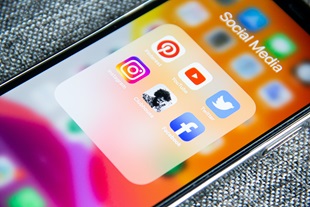



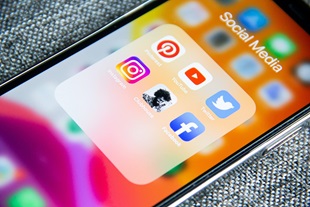


















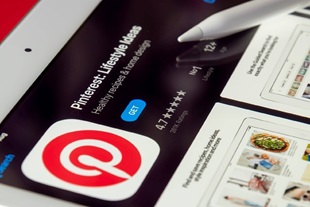








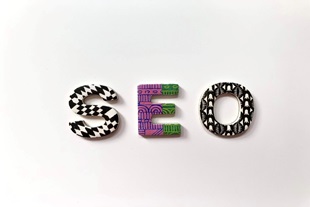











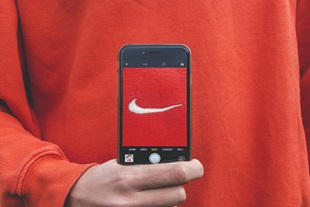


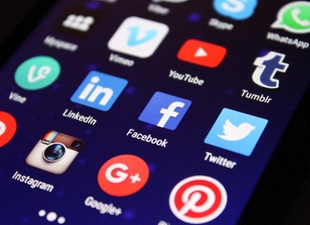

.jpg?mw=310)















































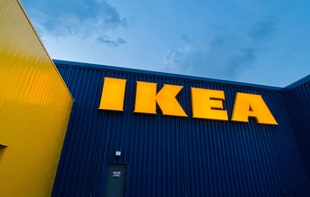

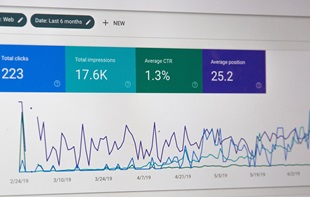



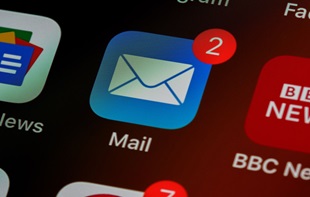





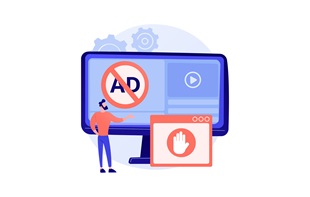



![The impact of online reviews on your business [Infographic]](/-/media/The-impact-of-online-reviews-on-your-business.jpg?mw=310)

![10 latest trends in digital marketing for beauty brands [Part.2]](/-/media/Appnova/Blog/ScreenShot20151026at1500471940x567/10-latest-trends-in-digital-marketing-for-beauty-brands-Part-2.jpg?mw=310)
![10 latest trends in beauty web design and digital marketing [Part.1]](/-/media/Appnova/BannerImages/18376519151_bbeaa6dafc_b-1/trends-in-beauty-web-design-and-digital-marketing/10-latest-trends-in-beauty-web-design-and-digital-marketing-Part1.jpg?mw=310)







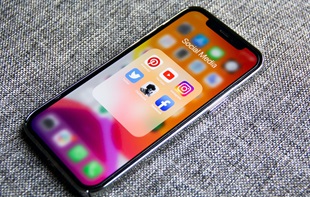







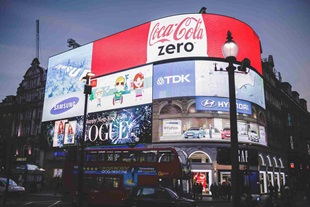










![15 crazy things people search on Google [Infographic]](/-/media/crazy-things-people-search-on-Google.png?mw=310)



![How to LOSE Twitter followers in 15 ways [Infographic]](/-/media/Appnova/Blog/08-internal-768x534.jpg?mw=310)


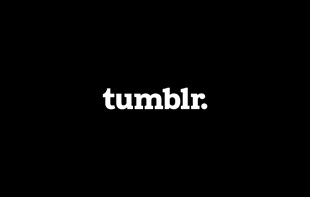




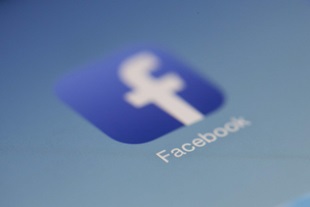








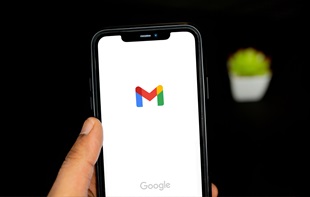

0.Comments